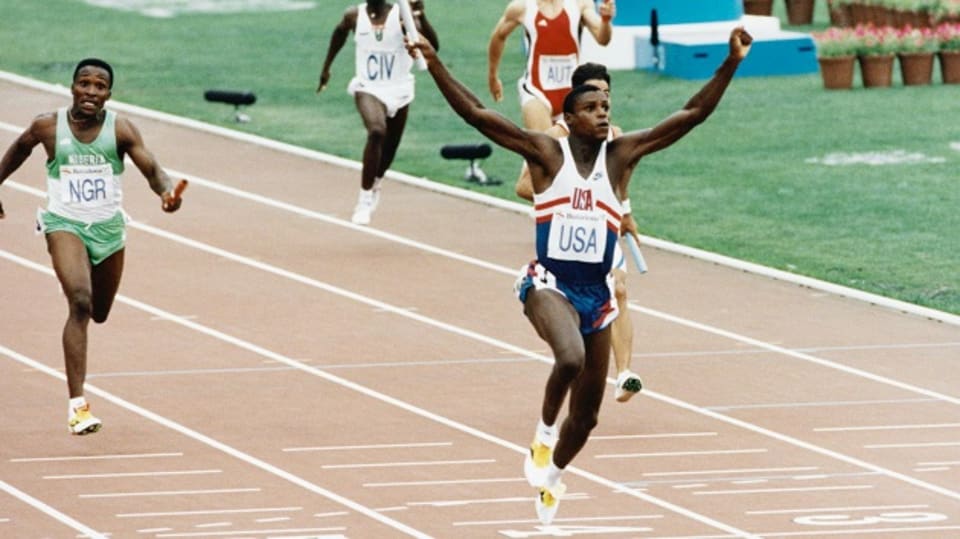Lewis raises the roof with golden leap
The world was still wallowing in the seismic fallout from the disqualification of Ben Johnson in the 100m when Carl Lewis opened the defence of his Olympic long jump title at the 1988 Games in Seoul.

Lewis, who was awarded the gold after Johnson’s performance was found to have been aided by the illegal use of steroids, had worn a look of utter bemusement as the Canadian romped to victory in a record time of 9.79secs days earlier.
The news had sent shockwaves through the city and the Olympic Movement and it was no small feat of concentration that Lewis was able to focus once again on the rest of his programme.
If revenge for that slight on victory wasn’t enough motivation, Lewis was also coping with the loss of his beloved father the year previous. Lewis had placed his gold medal from the 100m in Los Angeles 1984 into the hand of his deceased father William to be buried with him, pledging to him and his mother that he would win another.
He did win the second 100m gold but not in the manner he would have liked, and it was to the long jump – his favoured event – that he looked to reaffirm his standing.
Scheduling meant Lewis had less than an hour to recover from a 200m qualifier when the long jump final started.
He was due to jump first but officials accepted his request to go last of the 12 finalists to give him more time to recover.
The contest was seen as a battle between the American trio of Lewis, Mike Powell, and Larry Myricks.
Lewis was the model of consistency with opening jumps of 8.41m, 8.56m and 8.52m to give him a decent but not insurmountable advantage over his rivals.
Officials changed their tune about the jumping order after the third round and Lewis was reinstated at the top of the list but it didn’t faze him one bit and he soared to the ultimately decisive distance of 8.72m and the gold was assured.
Lewis became the first man to retain the long jump title and went on to win again in Barcelona and Atlanta in what is surely a feat never to be emulated.
